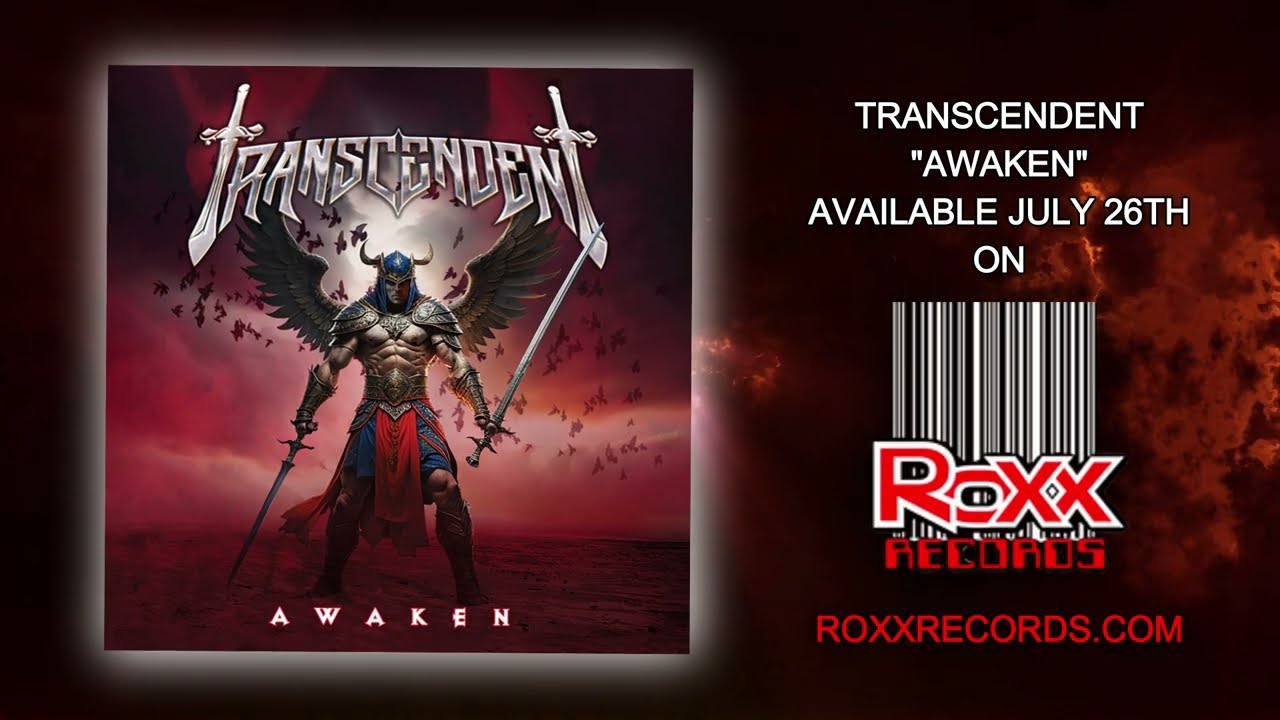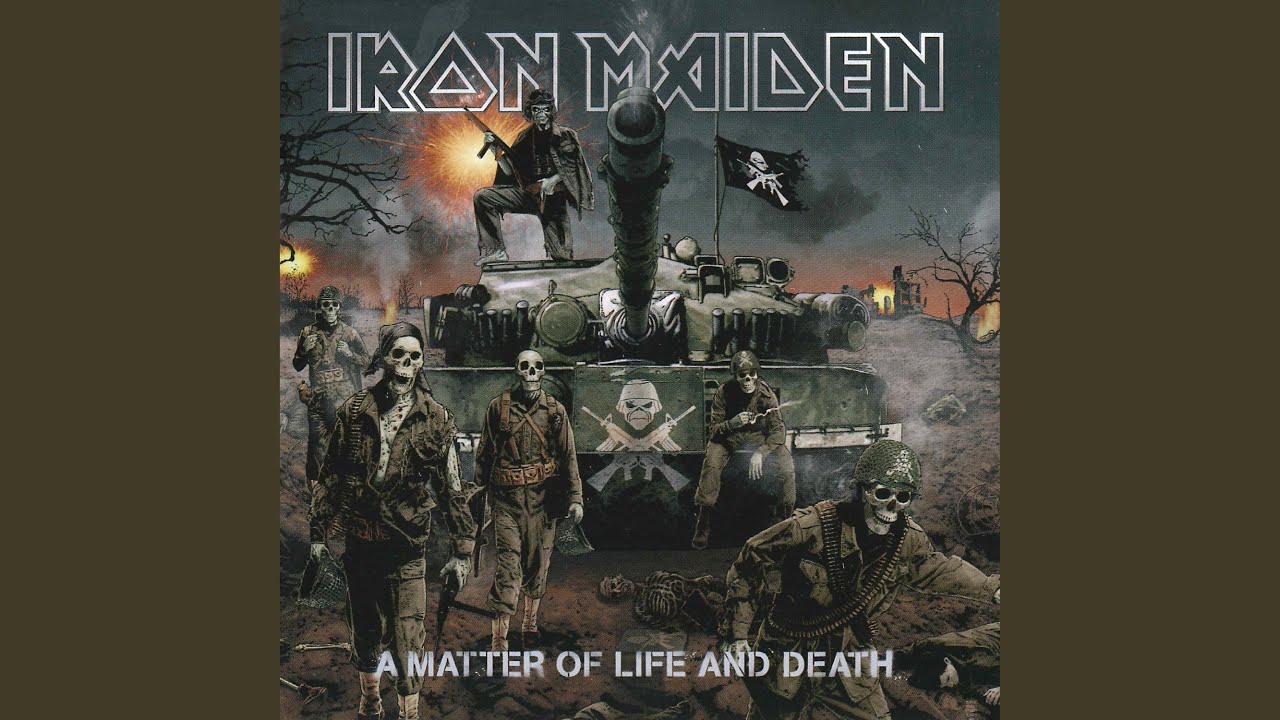Music
Is Iron Maiden a Christian Band?
Iron Maiden, one of the most influential heavy metal bands in history, has often found itself at the center of debates regarding its religious affiliations. With lyrics that traverse themes of history, mythology, and personal struggle, many fans have raised the question: Is Iron Maiden a Christian band? The answer is far from straightforward, as it intertwines the personal beliefs of the band members with their artistic expression. As we delve into this topic, we’ll explore the multifaceted nature of Iron Maiden’s identity, the complexity of their lyrical content, and the various perceptions held by fans.
The Band’s Identity: Not Christian, Yet Personal Faith Exists

At the heart of the discussion lies the understanding that Iron Maiden is not a Christian band, despite some individual members holding strong Christian beliefs. Formed in 1975 in London, Iron Maiden emerged as a powerhouse in the heavy metal scene, captivating audiences worldwide with their intricate sound and elaborate themes.
Heavy Metal Roots
The roots of heavy metal are steeped in rebellion and exploration of darker subjects. Iron Maiden fit this mold perfectly, often channeling their energy into narratives that discuss war, loss, and existential crises. The band’s music is a reflection of the turmoil present in society, rather than an endorsement of any particular ideology.
In this context, categorizing Iron Maiden as a Christian band seems contradictory to their core as artists. Their work does not seek to propagate Christian doctrine or morality; instead, it offers listeners thought-provoking reflections intermixed with entertainment. The notion that they could be pigeonholed into one specific belief system undermines the very essence of what heavy metal represents—freedom of thought and expression.
The Individuality Among Members
Within Iron Maiden, there exists a spectrum of beliefs among its members that complicates the narrative further. Drummer Nicko McBrain openly identifies as a fundamentalist Christian, and he has been vocal about the role faith plays in his life. His conversion story serves as a beacon for others navigating similar struggles, but his beliefs do not dictate the band’s collective identity.
For instance, bassist Steve Harris has expressed varying attitudes towards faith throughout the years, oscillating between traditional Christianity and alternative belief systems, including neo-paganism. This diversity in perspectives adds an intriguing layer to Iron Maiden’s music, allowing them to draw upon a wide range of experiences and ideas that enrich their artistry.
Lyrical Complexity: Examining the Themes

When examining Iron Maiden’s lyrics, one quickly realizes that they are not easily categorized. Themes of good versus evil, redemption, and existential reflection permeate their discography. While some songs may contain references to Christian motifs, they often serve more as literary devices than as outright endorsements of a specific faith.
Interplay of Myth and Religion
Iron Maiden’s lyrics frequently weave together mythological elements with historical narratives. For example, tracks like “The Trooper” and “Aces High” reflect on battles and conflicts that resonate within the human experience, regardless of religious affiliation. The song “Revelations” showcases a blend of biblical imagery with personal struggles, illustrating how individuals grapple with their beliefs amid life’s chaos.
This interplay invites listeners to engage in discussions about morality, sin, and the human condition without necessarily adhering to a singular religious viewpoint. By incorporating diverse themes, Iron Maiden creates a space where audiences can explore their spirituality in a broader context, contemplating the nuances of existence rather than being confined within rigid dogmas.
Shifts in Musical Narrative
Since the release of A Matter of Life and Death, there has been a noticeable shift in Iron Maiden’s lyrical focus towards more overtly Christian symbolism. Songs like “The Longest Day” examine the moral dilemmas faced by soldiers, while “For the Greater Good of God” provokes thoughts around the justifications of war in the name of faith. However, this evolution does not transform Iron Maiden into a Christian band; rather, it illustrates their willingness to address complex themes that resonate with a wider audience.
These explorations challenge listeners to reflect on their own beliefs, offering insights into the tension that often exists between faith and moral ambiguity. In doing so, Iron Maiden promotes a dialogue that transcends simple categorizations, encouraging fans to consider the implications of faith in their lives.
The Debate Among Fans: Perceptions vs. Reality

The conversation surrounding whether Iron Maiden qualifies as a Christian band transcends the musicians and taps into fan perceptions and cultural narratives. Some fans argue that the band’s content veers into anti-religious territory, branding them as satanic, while others contend that they represent one of the more wholesome acts within the heavy metal genre.
Misconceptions in Music Interpretation
Misinterpretation is a common occurrence in music, where listeners project their beliefs onto the art. Iron Maiden’s aesthetic, characterized by dark imagery and themes, has led some to erroneously label them as proponents of satanism. In reality, their intent is much more nuanced.
Songs like “Hallowed Be Thy Name” explore themes of mortality and spiritual reflection rather than glorifying evil. The gothic and macabre elements serve more as a vehicle for storytelling than an affirmation of a single ideology. This misconception highlights the subjective nature of interpreting art, particularly in genres like heavy metal, which thrive on complexity and contradiction.
A Dichotomy of Perspectives
The dichotomy of viewpoints among fans showcases the richness of Iron Maiden’s work. On one side, there are those who champion the band for its intellectual depth and thought-provoking themes. They appreciate how Iron Maiden challenges societal norms and encourages critical thinking about morality and faith.
Conversely, some fans remain fixated on the more sensational aspects of heavy metal, often misunderstanding the band’s artistic choices. While they may connect with Iron Maiden’s music on a visceral level, they might miss the underlying messages that encourage deeper contemplation.
Ultimately, this division underscores the idea that music can foster diverse interpretations—a hallmark of Iron Maiden’s legacy.
A Spectrum of Beliefs Within the Band

As previously mentioned, the varying beliefs among band members contribute significantly to the ongoing discourse surrounding Iron Maiden’s identity. This diversity enriches the band’s music, allowing them to explore different facets of spirituality and philosophy.
Nicko McBrain’s Conversion Experience
Nicko McBrain’s conversion to Christianity stands as a testament to the transformative power of faith. He has openly discussed how his beliefs impact his life and, by extension, his musical contributions. For McBrain, Christianity provides structure and purpose, shaping his outlook and creativity.
His fervor for faith adds an interesting dimension to Iron Maiden’s music. While the band may not espouse a Christian agenda, McBrain’s personal convictions can seep into the band’s ethos, providing insight into the human experience that resonates with many fans. This intersection of faith and artistry illustrates how individual beliefs can coexist with collective expressions.
Steve Harris and Alternative Belief Systems
On the flip side, Steve Harris’s fluctuating beliefs introduce a counterbalance to McBrain’s Christian perspective. Harris has expressed curiosity about alternative philosophies, including neo-paganism. This exploration opens the door to a plethora of spiritual considerations that inform the band’s creative process.
Harris’s outlook reflects a broader trend in contemporary society, where individuals often navigate multiple belief systems in search of meaning. This resonates strongly within Iron Maiden’s body of work, as songs evoke themes of questioning authority, exploring the human condition, and grappling with moral complexities.
Collective Creativity Driven by Individual Spirituality
The interplay of diverse beliefs among band members fosters a unique collaborative environment that fuels Iron Maiden’s creativity. Each member brings their perspective, resulting in a rich tapestry of ideas that connect with audiences across various backgrounds. This dynamic showcases how individual spirituality can contribute to a collective artistic output that transcends specific ideologies.
By embracing their differences, Iron Maiden exemplifies how diverse beliefs can coexist in harmony, enriching both their music and the conversations it inspires. This blending of perspectives invites listeners to explore their relationships with faith, morality, and existence in a way that feels authentic and relatable.
The Bigger Picture: Art, Faith, and Expression

As we probe deeper into the question of Iron Maiden’s identity as a Christian band, it’s essential to recognize the broader implications surrounding art, faith, and expression. The intersection of these elements raises profound questions about the nature of creativity and how it relates to individual and collective belief systems.
Artistic Freedom and Expression
Iron Maiden embodies the spirit of artistic freedom—an essential tenet of heavy metal. Their willingness to explore complex themes, including religion, morality, and existential crises, illustrates how art can serve as a platform for self-exploration.
By engaging with topics that provoke thought and reflection, Iron Maiden establishes a dialogue that invites listeners to connect with their own beliefs and experiences. This connection fosters a sense of community among fans, even when their interpretations differ. The band’s music becomes a shared space for exploration, bridging gaps between differing worldviews.
The Role of Faith in Music
Faith, in all its forms, shapes the human experience. For Iron Maiden, the existence of personal convictions among some members enhances the authenticity of their work. It illustrates how spirituality can inform artistic expression, adding layers of meaning that resonate with audiences.
Songs that touch upon religious motifs serve as invitations for listeners to reflect on their spiritual journeys. Whether one identifies with Christianity, atheism, or anything in between, Iron Maiden’s music speaks to universal themes of struggle, redemption, and the search for meaning. This broad appeal emphasizes that art can transcend boundaries, uniting individuals through shared experiences.
Engaging in Continuous Dialogue
Ultimately, the exploration of Iron Maiden’s identity as a Christian band encapsulates a larger conversation about art and belief. It urges us to reconsider the ways in which we define music and the messages it conveys. Can a band whose lyrics critique organized religion still produce art that resonates spiritually with its members and fans?
By challenging traditional definitions, we open ourselves to a richer understanding of the human experience, recognizing that spirituality is not always linear. Iron Maiden invites listeners to ponder their beliefs, encouraging personal reflection and growth.
The question of whether Iron Maiden is a Christian band reveals a complex interplay of personal beliefs, lyrical nuances, and diverse interpretations. While the band’s music does not align with any singular religious ideology, the individual convictions of its members add depth to their artistry.
As fans navigate the landscape of Iron Maiden’s discography, they encounter a rich tapestry of themes that provoke thought and invite introspection. Ultimately, the conversation surrounding Iron Maiden serves as a reminder of the power of music to transcend boundaries and foster dialogue about faith, morality, and the human experience. The band’s legacy endures, not only as pioneers of heavy metal but also as artists who challenge us to explore the depths of our beliefs, prompting us to ask: What does it mean to embrace faith in a world full of uncertainty?
